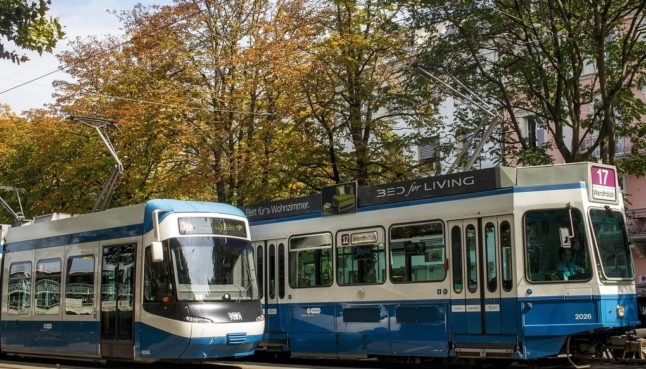Russia’s invasion of Ukraine is having far reaching consequences, including a likely gas shortage this winter.
The Association of Swiss Energy Companies states that the risk of a power shortage is “real and large”.
As a result, the Swiss government and Swiss companies are looking at ways they may be able to save money.
Swiss companies to cut heat and ask employees to work from home
One option, as reported in the Swiss media, is to reduce heating costs in offices by asking employees to work from home.
Swiss news outlet 20 Minutes reached out to several companies to ask for their plans in the instance of a gas shortage.
Insurance giant Axa said the first step would be to lower temperatures in offices, before rearranging office space so that only certain areas were heated.
The next step would be to ask employees to work from home.
Swiss Post confirmed that asking employees to work from home would be the first step, should a gas shortage push heating costs up.
‘It could hit us hard’: Switzerland prepares for impending gas shortage
If gas shortages persist, cantons could put in place gas rationing systems, whereby industry groups would have to adhere to gas quotas.
Private individuals and other institutions such as hospitals and schools would not be impacted by this rationing as they are given protected status.
Industry associations have spoken out against the situation, saying they are experiencing unfair treatment.
Zurich government councillor Patrick Neukom countered, saying that while he understood the frustrations of industry groups, they should take this time to push forward an energy transition away from Russian gas and towards renewables.
Zurich residents asked to keep homes cooler in winter
While working from home might save companies money, it is likely to push the onus on workers – many of whom will be working in colder homes anyway.
Gas crisis: Zurich residents urged to keep homes colder this winter
In order save electricity, the city’s government will call on households to lower the temperature from the usual 23 degrees to 20.
“If all households were to implement this, it would make a difference overall,” said Martin Neukom, head of Zurich’s construction sector.
Other cantons are getting ready for the impending gas crisis as well, not ruling out countrywide restrictions on electricity consumption.
Lidl is developing emergency plan for blackouts, other retailers also ‘well prepared’
Due to the expected gas shortage, Lidl Switzerland is setting up a worst-case-scenario contingency plans to be implemented in case of blackouts.
“We are observing developments in the energy sector very closely and are in the process of working out the necessary emergency plans”, the company spokesperson said, without disclosing further details.
Other large retail chains are devising plans as well in case they are plunged into darkness.
“Basically, we feel well prepared. There is no reason to panic; even meticulous preparations for extreme scenarios do not mean that they will have to be implemented”, Migros spokesperson said.
Coop and Manor also have various contingency plans in place, they said, while at Aldi, “we are always following the current situation closely and evaluating it as part of our crisis management in order to adapt our existing emergency concepts if necessary”.
READ MORE: How is Switzerland preparing for power outages this winter?
How reliant is Switzerland on Russian gas?
While the reliance on Russian oil is comparatively minimal, Switzerland has a heavier reliance on Russian gas.
Natural gas provides around an eighth of Switzerland’s total energy supply.
Problematically, Switzerland does not have any capacity to store gas in order to prevent insecurity of supply. This is despite a federally mandated store of a variety of other things, including foodstuffs and medication.
Ukraine invasion: How reliant is Switzerland on Russia for energy?
Switzerland buys most of its gas through various European distribution centres, although an estimated 47 percent of this is of Russian origin.



 Please whitelist us to continue reading.
Please whitelist us to continue reading.
Member comments